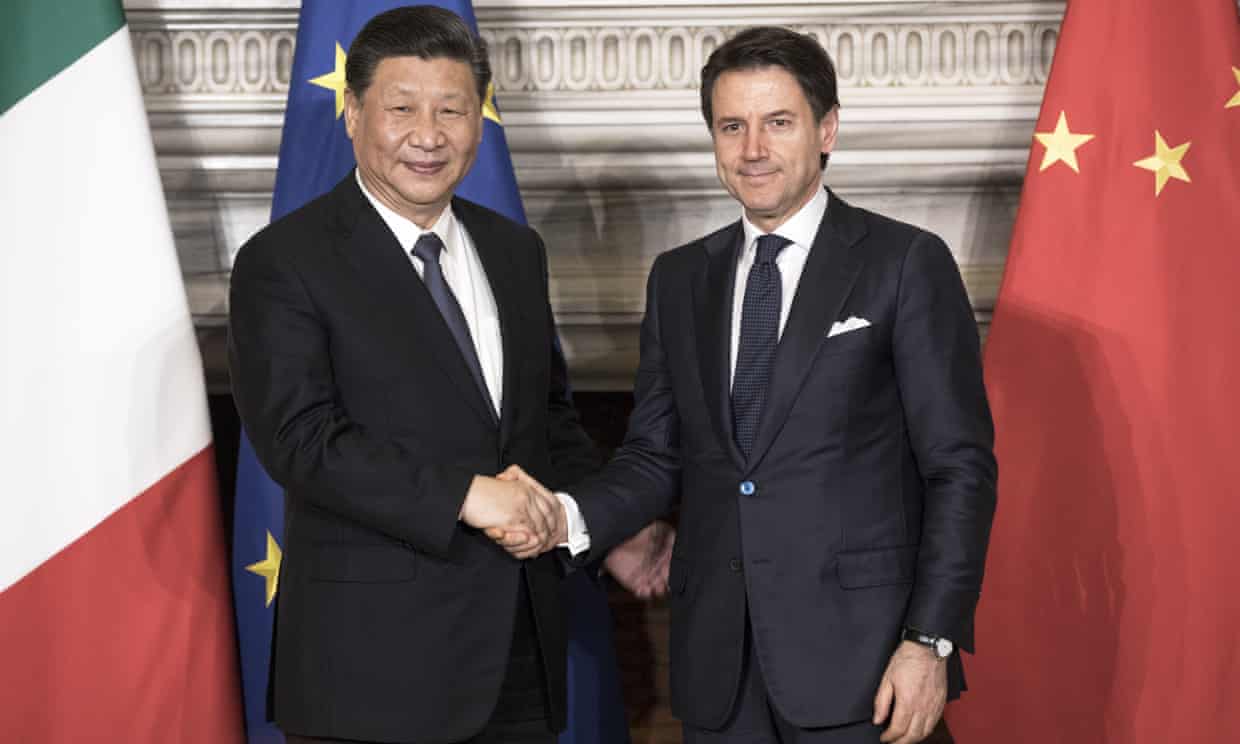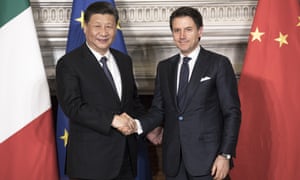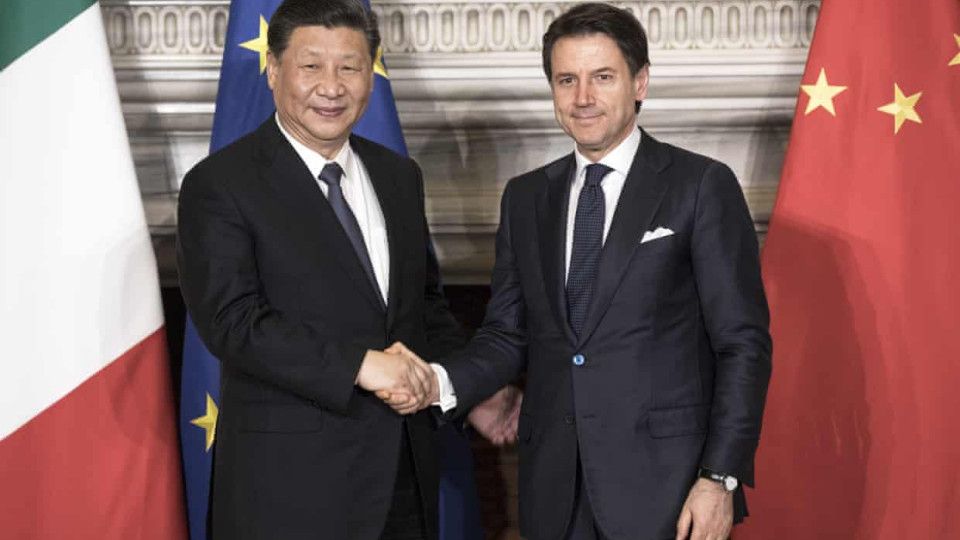
Xi Jinping visits Rome as Italy becomes first G7 country to back Belt and Road initiative

Italy has become the first G7 country to endorse a contentious plan by Chinato build a Silk Road-style global trade network, irking its EU and US allies.
The prime minister, Giuseppe Conte, and the Chinese president, Xi Jinping, have signed a non-binding memorandum of understanding (MoU) that could lead to Italy’s participation in China’s Belt and Road initiative (BRI), an ambitious project that envisages Chinese investment in a network of infrastructure projects connecting Asia, the Middle East, Africa and Europe.
“It’s now time for a more effective relationship between Italy and China,” Conte said.
Xi was treated like royalty during a two-day visit to Rome, during which the two countries struck about 10 other commercial deals in a variety of areas, including tourism, food and football.
But his ultimate goal was ensuring Italy’s contribution to his $1tn (£760bn) BRI enterprise, a move that gives legitimacy to an initiative dismissed by the US as a “vanity project”.
Xi cited Marco Polo, the Venetian merchant and explorer who travelled the old Silk Road in the middle ages, as being the “first bridge” between Italy and China. The modern-day version envisages a network of ports, railways, tunnels and other infrastructure spanning 60 countries.
The Italian president, Sergio Mattarella, also gave his backing to the deal, saying that China and Italy were “ideal travel companions” as he raised a toast with Xi during a gala dinner at the presidential palace on Friday night.
As the two countries celebrated, the US – which believes China is using the project to embolden its political and strategic clout – and the EU looked on with trepidation. The Dutch prime minister, Mark Rutte, warned Italy against “naivety”. “You have to take into account the possibility that China, through the policies, is also pursuing some of its national interests,” he told reporters in Brussels on Friday.
Xi travels to Palermo on Saturday afternoon before heading on to Monaco and Paris, where Emmanuel Macron is reportedly arranging a meeting with Angela Merkel and Jean-Claude Juncker on Tuesday. Macron has called for a coordinated EU-wide approach towards China.
Italy’s former centre-left administration expressed the first overtures towards the accord, with ex-prime minister Paolo Gentiloni attending a BRI summit, but it was eventually spearheaded by the Five Star Movement, the Eurosceptic party that came to power alongside the far-right League last June. The party believes the agreement will revive Italy’s stagnant economy, bring in much-needed investment for the country’s ports and infrastructure, and boost exports to China’s lucrative – if crowded – market.
Party members have dismissed European concerns as hypocritical, particularly as several member states already loosely collaborate in the BRI. For example, Duisburg in Germany is a crucial trade hub thanks to its rail connection with China, while the port of Hamburg also plays a prominent role.
“Everyone is somehow involved in the project but no other G7 country has signed an MoU of this kind,” said Renzo Cavalieri, a professor of law of east Asian countries at Ca’ Foscari University of Venice.
“What Italy has done, in quite a disordered way, is take a step ahead to create something which, so far, is not that strong in content but is quite important symbolically.”
One of the main criticisms is the Italian government’s failure to consult its EU and US allies and research the geopolitical issues. But the EU snub could also be because of the bloc’s failure to come up with a common China strategy that is favourable for all member states. Italy’s share of Chinese investments has lagged in recent years compared with France and Germany’s. Meanwhile, southern European states have tended to benefit less from deals with China because their companies are smaller and finances weaker.
“There is an approach by our government that is not friendly towards the European commission, but the EU has had problems in adopting a policy on China that would benefit all,” said Cavalieri.
The Guardian









Leave a comment